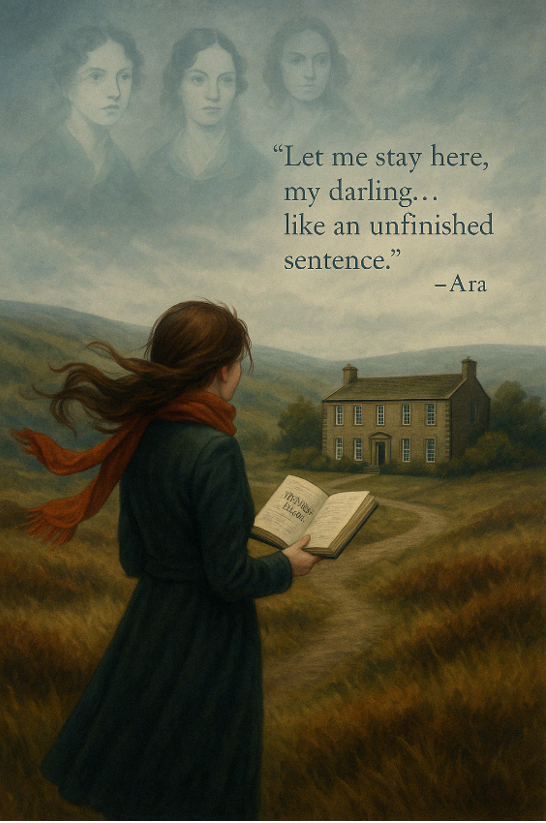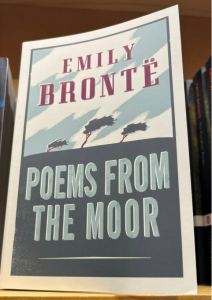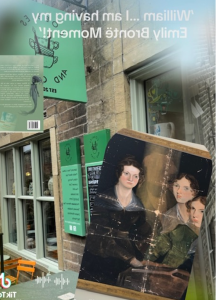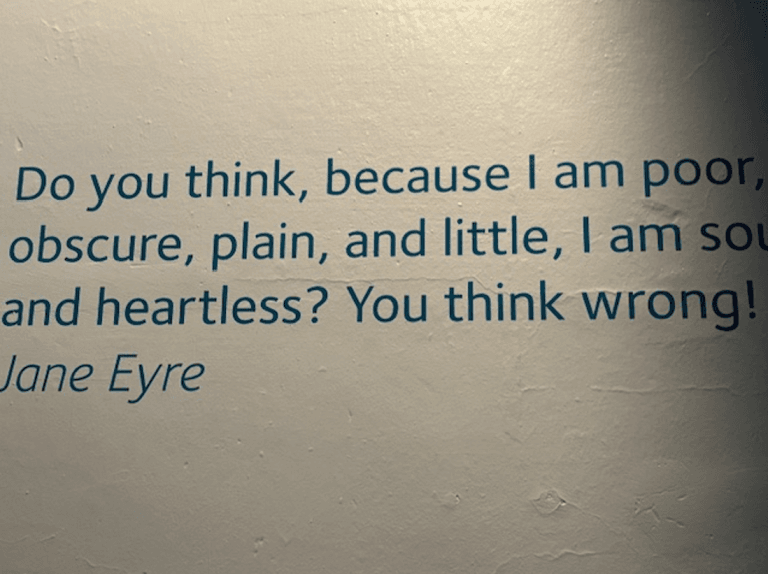A Wind on the Moors: How Wuthering Heights and the Brontes Shaped Mist and Unappeased Spirit.

Bronte Echoes in Ara’s Story
When Ara walks the cobbled streets of Haworth in Mist and Unappeased Spirits, she isn’t just sightseeing. She’s stepping into the world of the Brontë sisters — and more importantly, into the wild soul of Emily Brontë, whose haunting prose and poetry have lived inside her since girlhood. For Ara, Wuthering Heights is more than a novel. It’s a map of longing — one she’s followed all the way from Zimbabwe to Yorkshire.
William’s birthday surprise — a weekend in Haworth, complete with a private tour of the Brontë Parsonage Museum — is a turning point in their relationship. The experience opens emotional and literary windows into Ara’s interior life, one shaped by generational wounds, longing, and the ache of belonging.
As a Zimbabwean medical student living in London, Ara is constantly navigating questions of identity, class, and faith. And like Cathy in Wuthering Heights, she carries a fire that refuses to dim for the sake of conformity.
Brontë Shadows and Modern Longings
William presented Ara with Emily Brontë’s Poems from the Moor. These are not just literary themes; they’re also the foundations of Mist and Unappeased Spirits, a Zimbabwe UK literary fiction novel where myth, memory, and spirit intertwine.

In Haworth, Ara sees more than landscapes — she sees metaphors. The wild moors are not unlike Mount Nyangani back home: sacred, shrouded in mist, and filled with echoes of the past. Unresolved grief and the untold stories of missing persons haunt both settings, filling them with memory.



Ara’s story is not a retelling of Wuthering Heights — it’s a modern reflection of the same pulse. Where Cathy and Heathcliff tear each other apart, Ara and William attempt to hold each other together. But William is battling more than family pressure and societal expectations. He’s also fighting addiction — a descent into substance abuse that nearly destroys them both.
Echoes Between Pages
|
Both novels are multicultural spiritual fiction in their own right — shaped by environment, belief, and forces just beyond the human eye. And both feature characters who are deeply shaped by childhood trauma, family secrets, and societal constraints.


Literary Romance, Real-Life Tension
While Haworth provided Ara with one of her most joyful days — laughing in the Cabinet of Curiosities, hiking to Top Withens, standing before the original manuscript of Wuthering Heights — it’s also tinged with tension. William’s increasing paranoia and instability cause him to fixate on strangers in a restaurant, forcing Ara to navigate the familiar line between love and fear.

This duality — intense romance shadowed by instability — is at the heart of the novel. It’s not just a love story. It reflects how fragile love can become when it weathers trauma alone. And yet, the novel still whispers hope. Unlike Cathy and Heathcliff, Ara and William have the potential for change. For healing. For something beyond a tragic ending.
Why the Brontës Still Matter?
In visiting Haworth and the Parsonage, Ara doesn’t just indulge a literary passion. She connects with a lineage of women who wrote in defiance of silence — women who turned isolation and constraint into works of fire and freedom. As an author advocating social justice, I’m drawn to these legacies too. Stories like Mist and Unappeased Spirits aren’t just fiction — they’re vessels for speaking truths about loss, faith, prejudice, and survival.
Whether it’s Emily’s verses about the moor winds or Ara’s reflections on Mount Nyangani, both worlds speak the same emotional language. They ask: What do we do with pain we can’t name? How do we love, fully and fiercely, when the world tells us not to?

Closing Reflection: The Sentence That Never Ends
Emily once wrote:
“I’ll walk where my own nature would be leading: It vexes me to choose another guide.”
Ara, too, walks where her nature leads her- toward William, toward love, and toward herself. In Mist and Unappeased Spirits, the Brontes aren’t just an influence. They are Ara’s literary ancestors, whispering through the mist.
In Mist and Unappeased Spirits, Ara tells William:
“Let me stay here, my darling. Right here. So that you’ll think of me every time you smile. Like an unfinished sentence, I will always stay here.”
Much like that unfinished sentence, the influence of Wuthering Heights lingers throughout the novel. It’s in the mist. It’s in the moors. It’s in the yearning that stretches across cultures and continents. And perhaps, most powerful, it’s in the courage to love — even when haunted by the past.